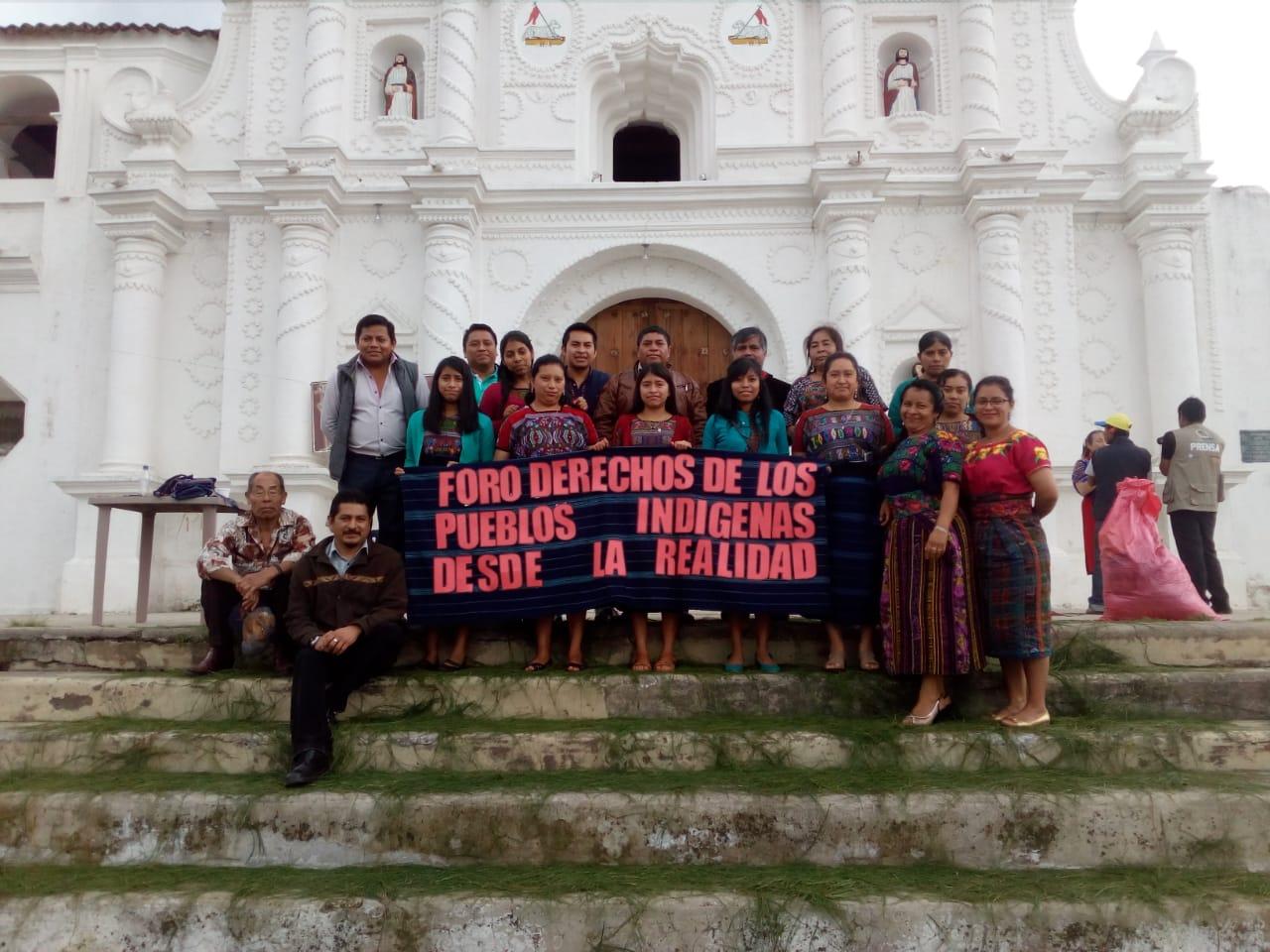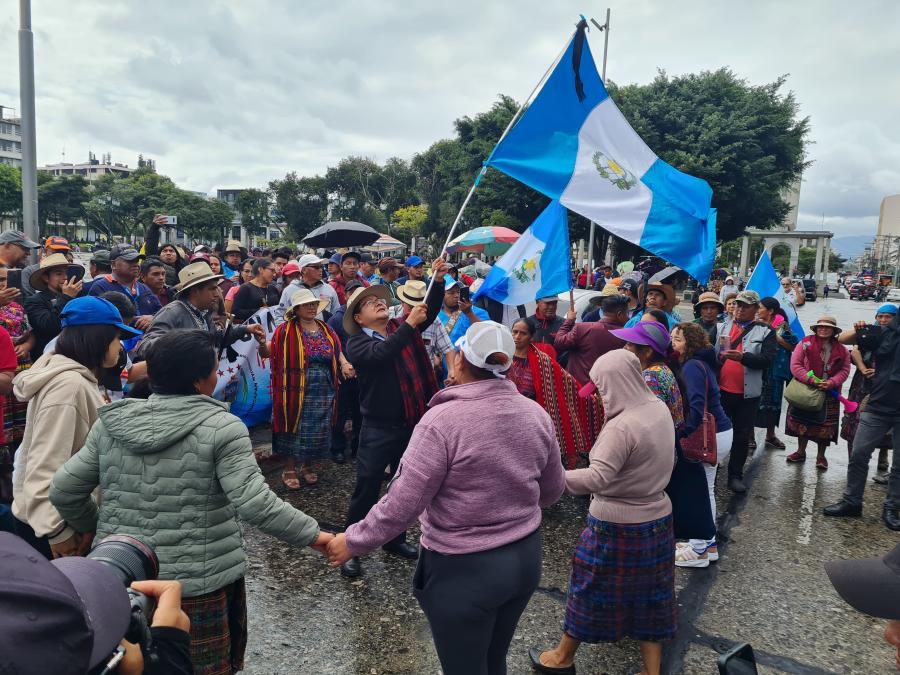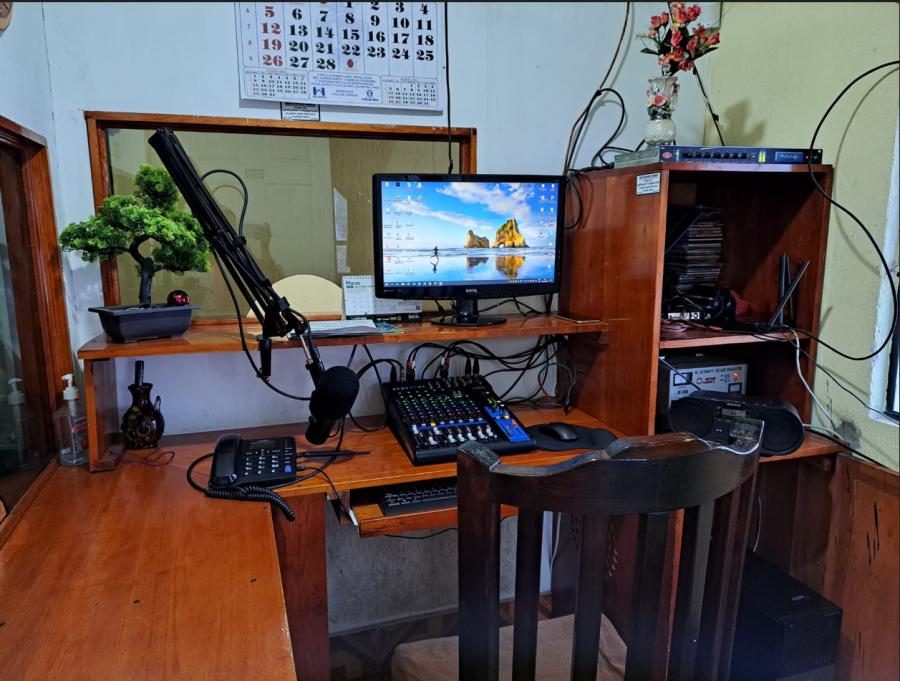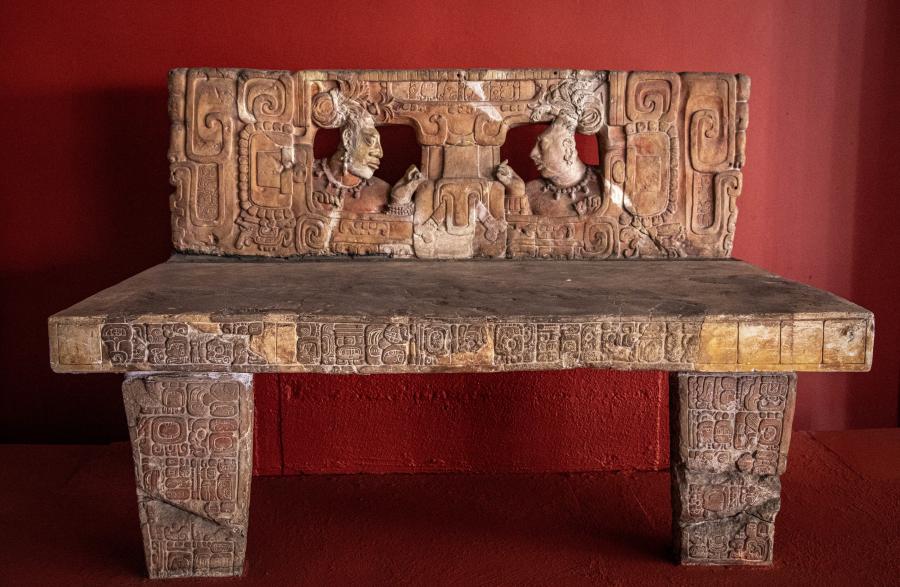
***Radio San Juan is a 2018 Community Media Grants Project Partner.
San Juan Comalapa is a Maya Kaqchikel community located in the department of Chimaltenango, Guatemala. It is nationally known for its colorful murals that reflect traditions and values of community life. Ninety-seven percent of San Juan Comalapa’s population is Indigenous. Like many of the Mayan communities in Guatemala, they face problems such as the loss of Kaqchikel cultural identity and the loss of ancestral community practices.
The Community Association for the Promotion, Dissemination, Cultural, Social and Educational Development of San Juan, which operates Radio San Juan, has been working to reverse this decline as people in the community are gradually forgetting their roots, are ashamed to speak their language, to wear their clothes, or to use the medicines of their grandparents to cure diseases. The Association has witnessed how the population has forgotten to respect and communicate with Mother Earth. All this has motivated them to undertake their first major project to promote of the rights of Indigenous Peoples through the creation of a Council of Promoters in the municipality.

The project began with a call for participation for a training process in the community, with the aim of involving people of all ages to work together. For the radio station, the most important thing was always from community involvement and participation. Thirteen women and twelve men of different ages attended a series of seven workshops that covered the rights of Indigenous Peoples. For the radio team, it was very exciting to see how each attendee got involved and interested in the topics of each workshop, even if they did not have prior knowledge. At the end of this training process, the results were immediate, the level of knowledge of Indigenous rights of the participants had drastically increased. Don Felix Otzoy, a man over 60 who works in his workshop at home, was very excited to learn and get involved in cultural revitalization together with rest of the participants. Youth and adults united and formed new friendships, since there were several generations of participants (14 - 65 years). José Bal, one of the most outstanding young collaborators during the process, was very active in approaching both young people and the elderly during all activities.

Many women demonstrated great commitment to follow up on the trainings, such as Evelin and Elvia, who despite the many obligations and responsibilities were inspired to attend the workshops by their love for the Kaqchikel culture and their concern to revitalize it. The participation of women is also reflected in the formation of the Council of Promoters of the Rights of Indigenous Peoples.
As an alternative to the training process of workshops, a community forum was held and focused on current political issues. In addition, participants had the opportunity to develop radio materials related to the revitalization of culture and national and international legislation that protect Indigenous Peoples.

At the end of the training processes, the Council of Promoters of the Rights of Indigenous Peoples was constituted, to which four young women and one man were elected. Throughout the process, the goal was the inclusion of women and for the participants to choose their representatives. The Council will work together with the ancestral authorities of San Juan Comalapa and visit communities and organizations to make exchanges with other similar groups and to develop their activities.

Radio San Juan is very proud to support the creation of this Council and to contribute not only to cultural revitalization but also to the fight against the violation of the rights of Indigenous Peoples. Today, Radio San Juan has greater recognition and presence after the completion of this training process. Leadership skills not only on the radio, but at the community level, were developed and the daily radio schedule is now more in line both with the Kaqchikel culture and community issues.

The Council was recently invited to regional and national meetings and the community and its members recognize in them both their own capacities and in the capacity of uniting the community as the Kaqchikel People. They say "if we do not dare and take the initiative to recover our rights, this will gradually become a much more difficult task to achieve." With the implementation of these workshops and the creation of the Council, a road has been paved to revitalize and strengthen the Kaqchikel culture to ensure that it does not disappear and that the right to live in accordance to Indigenous heritage is recognized more and more.



